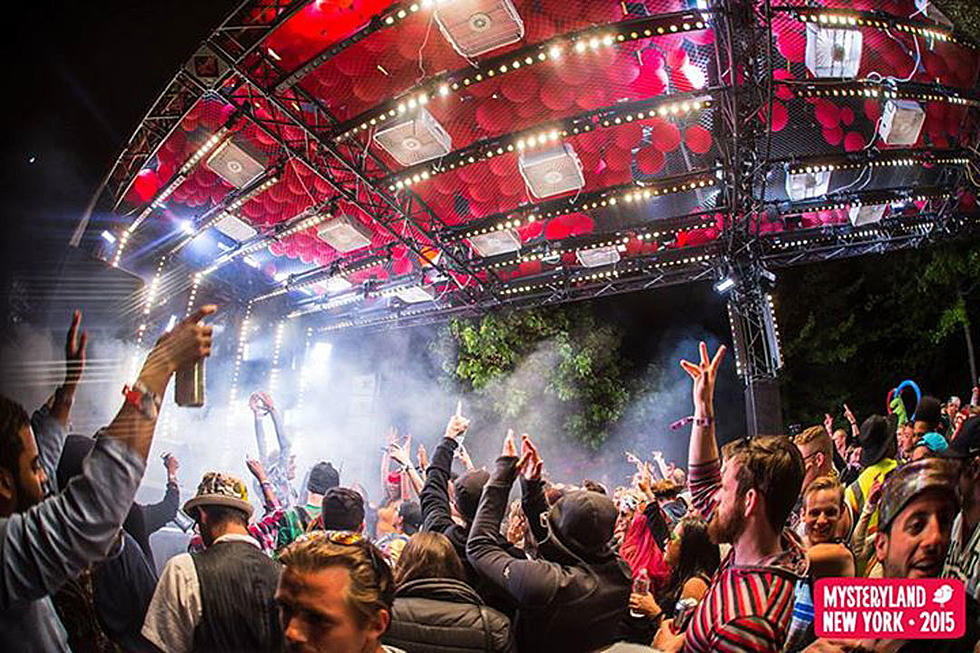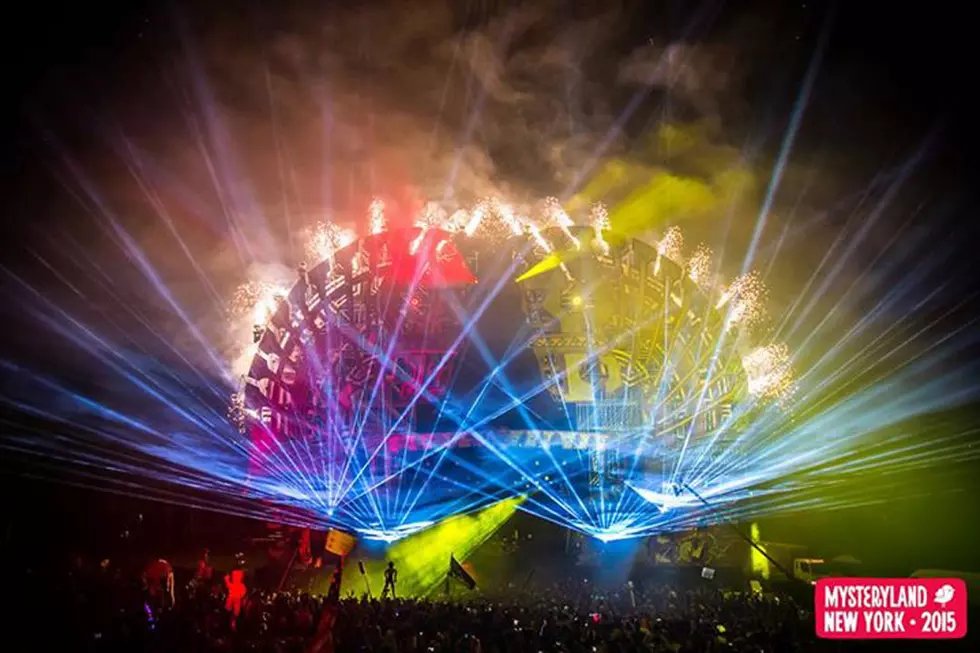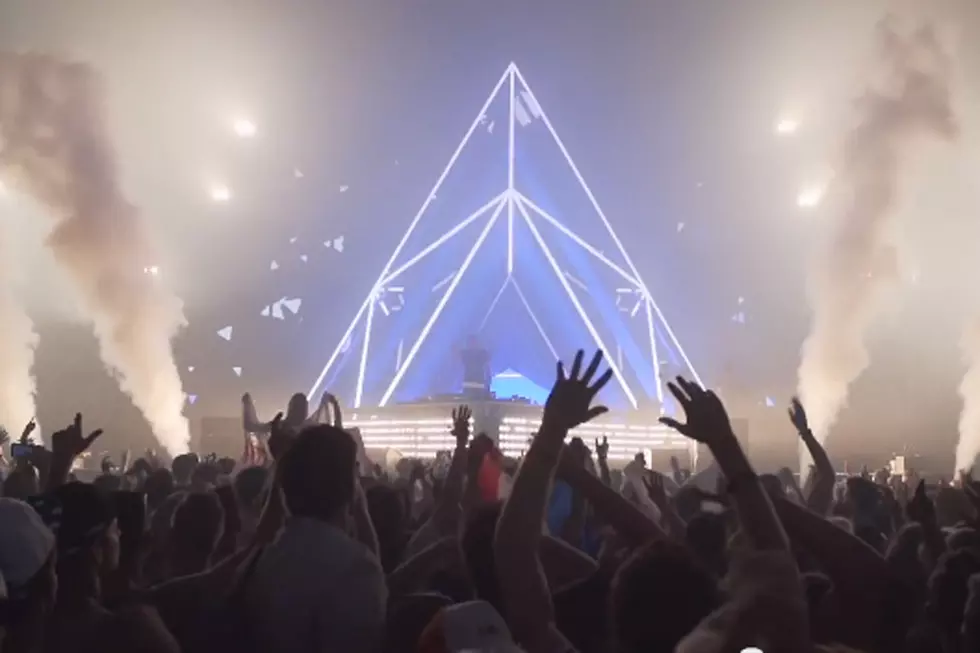
Exclusive Interview: Adam Beyer and the Techno Revolution
Adam Beyer and his own Drumcode label have set the standard for today's techno culture. A true veteran of the scene, Beyer has been around since the beginning, watching dance music trends come and go, all while staying true to his own unique musical outlook. We got a chance to chat with the legendary artist about his musical background, the Drumcode curated showcase at Mysteryland and how he manages to keep a balance in his life with a growing family and booming career. Here is what he had to say.
What made you realize that music was a passion of yours that you wanted to follow?
Adam Beyer: In my case it started really early. I was about 5 or so when I bought my first vinyl record. I think it was my mother's record collection in the beginning that first exposed me to the music world. I would just find music in my house and listen to it. My first big passion was Kiss actually. Music just grabbed me early. It was like love at first sight really. With some stuff you just sort of identify with and get interested. With me it happened really early and since then I’ve just been buying records and being mad about it.
What was the scene like in Sweden when you were growing up? Was it the warehouse scene or club scene that attracted you?
Well, I started to DJ around 1987 at the age of 11 or 12. Just like a bedroom DJ. We would go to this place where the youth would get together and we would create these small discos on Friday nights. Back then techno didn’t even exist and I was just playing commercial stuff like hip-hop and things like that. I was very into the early east coast hip-hop culture like Run DMC and LL Cool J. That led me into hip-house and acid-house. There was a musical revolution that took place in the late ’80’s that I connected with. I went to my first rave in Sweden around 1991 when I was 15. I can remember telling my friend on the way home in the morning that this was where I belonged and this was my thing. I was already really determined to do this back then. The scene started to get bigger in the mid 90’s and we had some great clubs where we all played at a lot.
The scene began to get bigger and we had some great clubs in the 90’s, especially one where we all played at a lot. I used to work in a record store back then and it was a really vibrant time in the mid 90’s in Sweden because of this club. It was kind of like a Berghain type club, big hanger warehouse type venue. They didn't sell alcohol so they were open very late, sometimes into Sunday afternoon. We also went on a lot of trips all around Europe to go to various parties.
But to go back to the original question, the scene in Sweden has been coming and going. It’s never been super constant because it’s a little bit too small of a country. We always had a lot of local producers and we are very internationally diverse in Sweden so we always had a lot of influence from England and the USA and Germany as well. So we always knew what was going on and there was always something happening in Sweden, sometimes bigger and sometimes smaller.
You’ve been around techno since the beginning, what has it been like to witness the progression of the culture that surrounds it?
Well right now I’m quite amazed to see how big it’s getting. Back in the ’90’s nothing and everything was kind of big. The commercial stuff back then was like The Chemical Brothers and The Prodigy. Techno now I think has so many subgenres that pretty much cover all the different phases that techno has gone through in the past and they are all big in their own way. I mean I love the whole 90’s revival thing, although, because I was there, it's not as exciting to me as it is to some of the hipster kids who think it’s really new. That’s why with Drumcode I try to progress in a way that feels new, like its been done before but it’s a bit more modern. In general, I love the state that the scene is in and techno has never been in a better place. It’s amazing.
You’ve shared a few posts on social media of you in the studio working on new material. Can you elaborate on how you approach the production process?
I don’t really have a blueprint for how I work. Mostly because I don’t work that much in the studio anymore because i don't have the time. I have a family and I play out like crazy and have a busy schedule with running the labels and radio show. But lately I’ve been trying to get back into it more. The way I approach it normally is I start with an idea, maybe bring in a sample or a hook and build around it. I’ve found that the best way to approach a new track is to make a collection of sounds that you want to use and then start making a collage. If you just try to put a track together, sound by sound, you tend to get stuck sometimes. If there is any advice I would give I would say to collect a bunch of stuff and then start to cut and shape and get a track going.
What is your vision behind the Drumcode label?
When I started Drumcode in ’96 my idea was to not release anything I wouldn’t play out. It began as a label for techno DJs and not so much for people to just listen to. But back then it was a lot more loopy and it was a bit harder and faster. Today people enjoy listening to techno at anytime and not just in the club. The idea is still the same though with Drumcode. I wouldn’t release something I wouldn’t play and that has always been my focus. These days I look for records that have that ‘it’ factor. It may have a theme but without being cheesy or overused. It’s just a feeling you know. It’s hard to pinpoint what draws me to a track. When you are so into it all the time I just kind of know what the next thing is going to be. I try not to follow trends and instead I aim to see trends that are coming or I naturally hear stuff. I like to find tracks with elements from what is going on currently, but always keep the Drumcode formula involved.
You’ve been going to Miami for over a decade. Can you reflect on what it was like for you in the beginning and perhaps how the Drumcode profile has evolved?
Yeah it’s quite amazing really. I think the first time I came to Miami was back in 2003 or 2004. I remember playing for weird little underground side events and various small clubs. There was always a little clique that liked techno and tried to promote it. I remember there was this rave I played at with Boy George, which was a really random lineup and different, but not bad at all. Year by year we played something a bit better and then we would get invited to play other parties. Maybe 5 or 6 years ago I threw my first Drumcode party with maybe about 300 people and it went really well. Each year after that we’ve been stepping it up bit by bit. Now we’re taking over Space which I think suits us quite well. We could probably do something bigger at a warehouse but then I think it would be a lot shorter. I like the fact that we can show the full range of what we do and have a big lineup where people play a bit longer. Last year me and Joseph Capriati closed it and we are doing the same thing this year. It’s a nice way to close out the conference because a lot of people come out that night who have been working all week and want to have that last party. We’re at a really good place right now. With where the closing party is now we can really showcase our full Drumcode roster.
You and your partner, Ida Engberg, have a bunch of B2B sets planned for this year, what’s it like sharing the stage with her?
We’ve been doing it for quite a few years on and off and this year we thought we would do it proper and take some big bookings. I think we have about 10 or 15 gigs planned this year. I love it. It’s amazing to be able to play with your partner. It’s a challenge in some ways but we always have a great experience. Of course you have your better days and your not so good days but more or less every gig we’ve done together has been quite special in terms of the music we play. For me I can play a little bit different from what i usually do. I play a bit less aggressive and we play a bit more song based stuff, rather than just straight techno. It's nice to get a break away from my own thing and to do something like that because it’s a bit more relaxed and different and more fun in some ways. There is a lot of positive energy around it and I really think people feel that. I wasn’t sure how people would receive it in the beginning but 99% has been positive feedback and people seem to really be into the idea.
Do you feel like feeding off another persons energy in the Dj booth helps to enhance your set?
Definitely. If it’s the right person. I mean, I wouldn't play B2B with just anyone. Which is just common sense. Both with Joseph and Ida who are the artists I mainly play B2B with I have just had really great experiences with. For me it’s really important to get inspired by other people. For example, Joseph Capriati and the next generation has really got the energy and the youthfulness. Sometimes I can get a bit cynical because I have been in the scene for so long and I think that’s a really dangerous thing to be. I see a lot of the older techno artists become cynical later on in their careers and that’s something that I don’t want to happen to me. For me to embrace the new artists into the label and play together and look at the new music without being judgmental is giving me a lot of important and positive feedback. It really inspires me to see them and see how they think and play. With Ida she is coming from a slightly different musical background. I really admire her as a DJ when she plays solo. I love to listen because she always finds all this music that I probably wouldn't realize how good it is.
You are also curating a stage at Mysteryland, what is so special about having your own Drumcode showcase at a festival like Mysteryland?
We’ve been doing it for a few years now and it’s really cool to see that it is taking off in the USA. Part of the success is the family aspect. We all know each other quite well and we’ve played with each other in the past. What we try to create is a cohesive journey throughout the whole night, not just individual performances. Some other big artist's, when they curate their own stages, they book artists just to fill it out and then they put the spotlight on themselves. That’s not what we try to do with the Drumcode showcase. I want to give a complete package. It’s not just all about me it’s about all of us because they are all amazing performers and DJs. It’s like giving the audience a musical trip through the Drumcode universe. And that’s what techno is about, the longer journey.
You have your Drumcode family and you also have your personal family. How does having children change your perspective on life and your career?
Everyone always says that your life is going to change once you have kids and I didn't realize this until it happened. In my case it has really made me more disciplined and focused. Of course you see your friends less and life becomes centered around either family or work. It’s been an amazing experience for me though. I mean, Ida has been amazing through it all. She had to sacrifice so much because she’s not playing out as much now as she used to so she is really the big hero in all this. It’s a great thing and we make it work. The logistics can be quite tough sometimes but we can do it, it’s possible.
Do you hope that your children will someday have the same passion for music that you do?
Of course there's the dream that they will love it and find the passion in it but the thing with kids is that you never know. They might turn out to be doctors or lawyers. I don’t want to put that pressure on them but it’s something that hopefully will happen naturally. If you look at other families with parents who are creative, the kids usually end up doing something like that as well because it’s a good path through life i think. If you have the opportunity to take that path. For me, I’m not going to say it’s been a lifesaver, but my life would be very different without music.
What do you have in the works in terms of new music for Drumcode?
Me and Joseph have produced a record together and I think it’s going to be released in June. We’re doing a bunch of B2Bs this year so it’s great to tie in the gigs with a new release. I’ve also decided to release a new EP from myself with a few tracks that I’ve been holding onto over the past year. I’m always super paranoid with my own stuff. It’s going to be a 4 tracker and I think it should be out fairly soon.
It is Adam's passion for music fuels him to inject new concepts and ideas in the dance music community. As the Drumcode label continues to stay relevant in an ever evolving dance culture, his vision and drive have propelled him to the top of the totem pole. Be sure to catch Adam Beyer along with Nicole Moudaber, Ida Engberg, Alan Fitzpatrick, Paul Ritch and Bart Skils at the Drumcode showcase at Mysteryland in May. Tickets are available on the official Mysteryland website.
More From Elektro Daily
